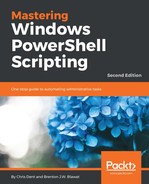It is rarely realistic to expect any significant piece of code to pass all of the tests PSScriptAnalyzer will throw at it.
Individual tests can be suppressed at function, script, or class level. The following demonstrative function creates a PSCustomObject:
function New-Message {
[CmdletBinding()]
param (
$Message
)
[PSCustomObject]@{
Name = 1
Value = $Message
}
}
Running PSScriptAnalyzer against a file containing the function will show the following warning:
PS> Invoke-ScriptAnalyzer $psISE.CurrentFile.FullPath | Format-List
RuleName : PSUseShouldProcessForStateChangingFunctions
Severity : Warning
Line : 1
Column : 10
Message : Function 'New-Message' has verb that could change system state. Therefore, the function has to support 'ShouldProcess'.
Given that this function creates a new object in memory, and does not change the system state, the message might be suppressed. This is achieved by adding a SuppressMessage attribute before a param block:
function New-Message {
[Diagnostics.CodeAnalysis.SuppressMessage('PSUseShouldProcessForStateChangingFunctions', '')]
[CmdletBinding()]
param (
$Message
)
[PSCustomObject]@{
Name = 1
Value = $Message
}
}
Rules are typically suppressed as it becomes evident one will be triggered. The list of rules may be viewed using the Get-ScriptAnalyzerRule command.
